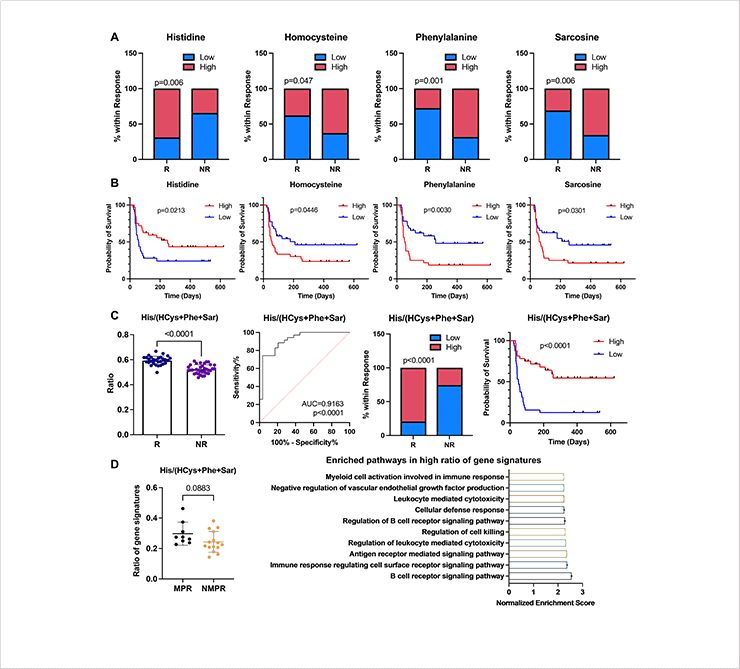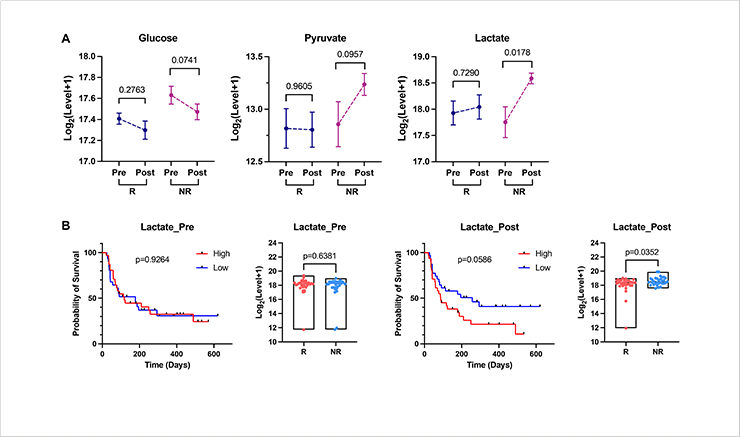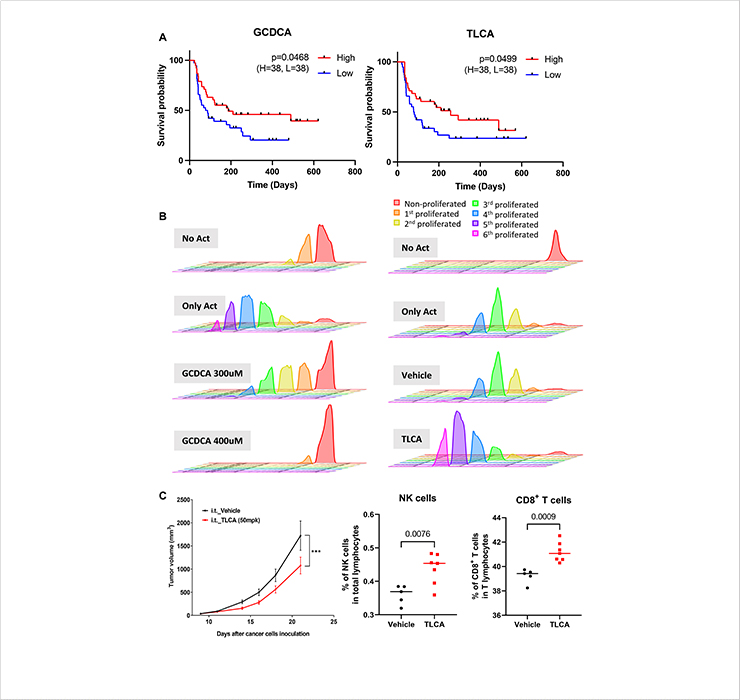Representative Research Publications
Discovery of Metabolites Predicting the response of Immunotherapy in Non-Small Cell Lung Cancer Pati 2024 > Representative Research Publications > Research Results Home
Discovery of Metabolites Predicting the response of Immunotherapy in Non-Small Cell Lung Cancer Patients
- Drug Resist. Update / 2024. 11.
- Se-Hoon Lee, Sujeong Kim, Jueun Lee (First author), Geum-Sook Hwang, Hansoo Park(Corresponding author)
Research Summary
The current standard cancer treatment, immunotherapy, is an innovative approach that activates the patient's immune system. However, only about 20–30% of patients respond effectively to this treatment. Therefore, there is a need to identify biomarkers that can predict patient response to immunotherapy in advance and to discover new therapeutic targets that can enhance treatment efficacy.
In this study, we analyzed plasma samples from 76 non-small cell lung cancer (NSCLC) patients before and after (2–3 weeks) treatment with immune checkpoint inhibitors (anti-PD-L1 and anti-PD-1*). Our findings indicate that amino acid metabolism, glycolysis, and bile acid metabolism play crucial roles in predicting the efficacy of cancer immunotherapy and immune activation.
We identified the ratios of amino acids such as histidine, homocysteine, phenylalanine, and sarcosine as key biomarkers for predicting immunotherapy response. Additionally, lactate, a byproduct of glycolysis, was found to increase in non-responders after immunotherapy, suggesting its potential as a biomarker for monitoring treatment efficacy.
In bile acid metabolism, glycochenodeoxycholic acid (GCDCA) and taurolithocholic acid (TLCA) were associated with immunotherapy response and treatment prognosis. Furthermore, TLCA was found to directly enhance T-cell proliferation and cytotoxicity, reduce tumor growth, and strengthen anti-tumor immunity in cancer animal models.
* Anti-PD-L1 and Anti-PD-1: These are representative immune checkpoint inhibitors that target PD-L1 and PD-1 proteins, respectively
Expected Outcomes
This study identified metabolites that can predict the response of immunotherapy in patients who received immune checkpoint inhibitors. These findings are expected to be applied in clinical practice in the future, contributing to overcoming low treatment efficacy to immunotherapy.
Additionally, the study demonstrated that both untargeted and targeted metabolomics analysis technologies are valuable tools for predicting and monitoring the effectiveness of immunotherapy.
Related Figures
 Fig. 1 Association of amino acid Metabolism with immunotherapy and prognosis
Fig. 1 Association of amino acid Metabolism with immunotherapy and prognosis
 Fig. 2 Association of glycolysis with immunotherapy response and prognosis
Fig. 2 Association of glycolysis with immunotherapy response and prognosis
 Fig. 3 Bile acids associated with immunotherapy prognosis and enhancing immune
Fig. 3 Bile acids associated with immunotherapy prognosis and enhancing immune



